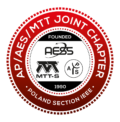Professor Krzysztof Kulpa Honored with Prestigious IEEE Fellow Title
During the IEEE Radar Conference 2026 held in Atlanta (USA), Professor Krzysztof Kulpa received the IEEE Fellow certificate — a prestigious recognition awarded to distinguished IEEE members whose achievements have made an extraordinary impact on the advancement of science and technology, with a significant international reputation. He is the first Polish recipient of this title within the IEEE Aerospace and Electronic Systems Society.
Professor Kulpa’s scientific pursuits are centered on digital signal processing, with a particular emphasis on radar signal analysis. He has developed expertise in the tracking of maneuvering targets, detection of small-scale objects with both ground-based and airborne radars, and the design of passive and noise radar systems. His research has led to practical implementations, notably contributing to the creation of Poland’s first SAR radar and the SPL passive radar. He has authored over 590 publications in the field, including more than 100 works devoted to passive radar technology.
In recognition of his outstanding scientific achievements, Professor Kulpa has been awarded numerous prestigious honors, such as the Knight’s Cross of the Order of Polonia Restituta, the Gold Cross of Merit, and the Gold Medal for Meritorious Service to National Defense. He is also a four-time recipient of the NATO SET Panel Excellence Award and holds the distinction of being the first Polish scientist to receive the NATO von Kármán Medal, the alliance’s most esteemed scientific award.
His academic leadership extends beyond research. He is currently the Chair of the Microwave and Radar Section of the Electronics and Telecommunications Committee of the Polish Academy of Sciences. He served as Chair of the Polish Chapter of the IEEE Signal Processing Society from 2002 to 2005. Professor Kulpa has been actively engaged with the NATO Science and Technology Organization since 1999, having co-directed the NATO Advanced Study Institute in 2005 and led the NATO Lecture Series on Passive Radar Technology from 2017 to 2023. He now serves as a Member at Large on the NATO STO SET Panel.
Congratulations!




